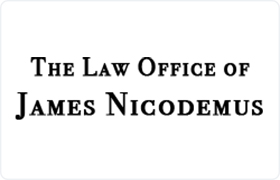Evanston Divorce & Family Law Lawyer, Illinois
Sponsored Law Firm
-
 x
x

Click For More Info:
-
The Law Offices of James Nicodemus
2700 Patriot Blvd Suite 250 Glenview, IL 60026» view mapDivorce & Family Law Experienced Divorce & Family Lawyer
When you need accurate representation, whether it’s a divorce lawyer, family lawyer or child custody attorney, James Nicodemus is there for you.
800-986-5891
Sandra M. Rosenbloom
Alimony & Spousal Support, Child Support, Farms, Divorce
Status: In Good Standing
Mario E. Utreras
Child Support, Civil Rights, Corporate, Business Organization
Status: In Good Standing
FREE CONSULTATION
CONTACTMelanie B. Hoffman
Estate Administration, Estate Planning, Guardianships & Conservatorships
Status: In Good Standing
Elizabeth Fink
Elder Law, Estate Planning, Guardianships & Conservatorships, Living Wills
Status: In Good Standing
Sharon Corse
Family Law, Divorce, Child Support, Child Custody, Divorce & Family Law
Status: In Good Standing Licensed: 17 Years
FREE CONSULTATION
CONTACTRichard P Broderick
Real Estate, Divorce & Family Law, Criminal, Accident & Injury, Child Support
Status: In Good Standing Licensed: 30 Years
Elena M. Duarte
Divorce & Family Law, Real Estate, Accident & Injury
Status: In Good Standing Licensed: 36 Years
FREE CONSULTATION
CONTACT James Nicodemus Glenview, IL
James Nicodemus Glenview, IL AboutThe Law Offices of James Nicodemus
AboutThe Law Offices of James Nicodemus Practice AreasExpertise
Practice AreasExpertise
